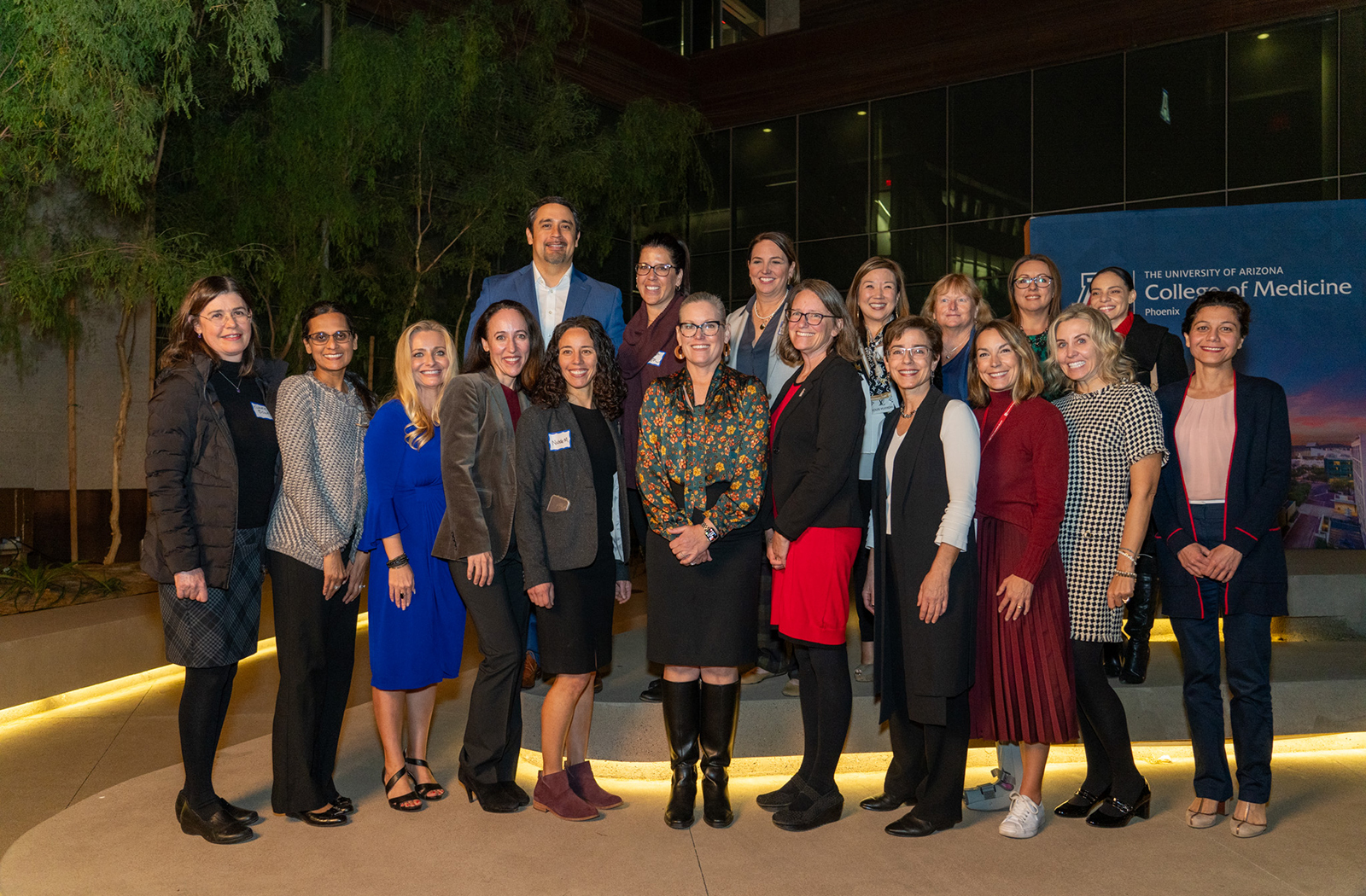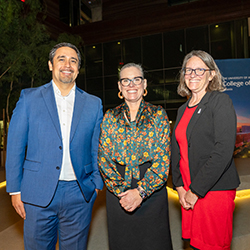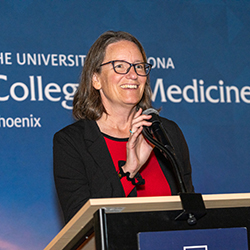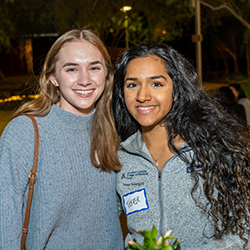
Women in Medicine and Science Welcome Governor Katie Hobbs to Their Annual Networking Event

Celebrating the impact that women are making in medicine and science and supporting their growth as leaders was the focus of the 6th Annual Women in Medicine and Science (WIMS) Fall Networking Event.

“Women have always been at the forefront of change in Arizona,” Hobbs said. “I'm inspired by the work you are doing through the Women in Medicine and Science program, in order to uplift each other and address the discrepancies in your field.”
The University of Arizona College of Medicine – Phoenix’s WIMS group champions the incredible women faculty, staff and students who are advancing medicine and access to care across the communities of Arizona.
“But we need to do more to bring women into leadership positions — intentional mentorship, giving women a seat at the table, encouraging them to be active participants in the overall operations of a team, taking their opinions seriously, empowering them to execute plans, trusting them to oversee departments, ensuring that we’re seeking a wide array of perspectives, and recognizing and uplifting their accomplishments and contributions,” Hobbs said.
A comprehensive study published in 2021 in The American Journal of the Medical Sciences showed significant disparities remain for women entering the health professions. These include marked differences in salary, the lack of ascension to leadership roles, as well as the frequency of being subjected to harassment or predatory behaviors.
Taben Hale, PhD, a professor in the Department of Basic Medical Sciences and the director of WIMS, shared the progress that has been made toward parity since the group’s inception. “When WIMS started in 2017, we had no women at the rank of full professor with tenure. Today, 27% of tenured full professors at the College of Medicine – Phoenix are women,” she said

Governor Hobbs, who was born and raised in Arizona, has led an exemplary career of public service. After graduating from college, she worked as a social worker aiding homeless youth. She later helped run one of the largest domestic violence shelters in the country, the Sojourner Center. It was that spirit for giving back that inspired her to run for office — a track she has held with distinction.
Beginning in 2010, Governor Hobbs served in the Arizona State Legislature for four terms, including two as Senate Minority Leader. She was then elected Secretary of State in 2018. In 2022, she was elected the fifth woman — and fifth Arizona native — to lead the state of Arizona.
Governor Hobbs’ journey is aspirational, and Dr. Hale noted how motivating it was to have her in attendance. “She [Governor Hobbs] is an inspirational leader, who shared with us how to lead through adversity and the importance of bringing together diverse groups with differing opinions to advance important initiatives,” she said. “I appreciated how candid she was when sharing the unique challenges that women leaders face and the importance of keeping focus on the mission. Her participation in this event shows the impact and the reach that our WIMS group continues to build.”
WIMS’ mission is to advocate for and mentor women within academic medicine as they navigate their careers. Offering such support is vital to truly spark change in the industry.

Kelly Walter built on that sentiment. “It is cool that there are events like this — where we're able to meet physicians, researchers from all different phases in their career — because in undergrad, I had no opportunities like this,” she said.
Chynna Nguyen — who was just elected vice president of the Medical Student Government — was stirred by the Governor’s words. “It inspires me to follow her footsteps and lead by example,” she said.
At the conclusion of her remarks, Governor Hobbs invited the attendees to continue building toward their shared goals stating, “I look forward to working with you all to create an Arizona that reflects the strong women who live and work here.”
About the College
Founded in 2007, the University of Arizona College of Medicine – Phoenix inspires and trains exemplary physicians, scientists and leaders to advance its core missions in education, research, clinical care and service to communities across Arizona. The college’s strength lies in our collaborations and partnerships with clinical affiliates, community organizations and industry sponsors. With our primary affiliate, Banner Health, we are recognized as the premier academic medical center in Phoenix. As an anchor institution of the Phoenix Bioscience Core, the college is home to signature research programs in neurosciences, cardiopulmonary diseases, immunology, informatics and metabolism. These focus areas uniquely position us to drive biomedical research and bolster economic development in the region.
As an urban institution with strong roots in rural and tribal health, the college has graduated more than 1,000 physicians and matriculates 130 students each year. Greater than 60% of matriculating students are from Arizona and many continue training at our GME sponsored residency programs, ultimately pursuing local academic and community-based opportunities. While our traditional four-year program continues to thrive, we will launch our recently approved accelerated three-year medical student curriculum with exclusive focus on primary care. This program is designed to further enhance workforce retention needs across Arizona.
The college has embarked on our strategic plan for 2025 to 2030. Learn more.